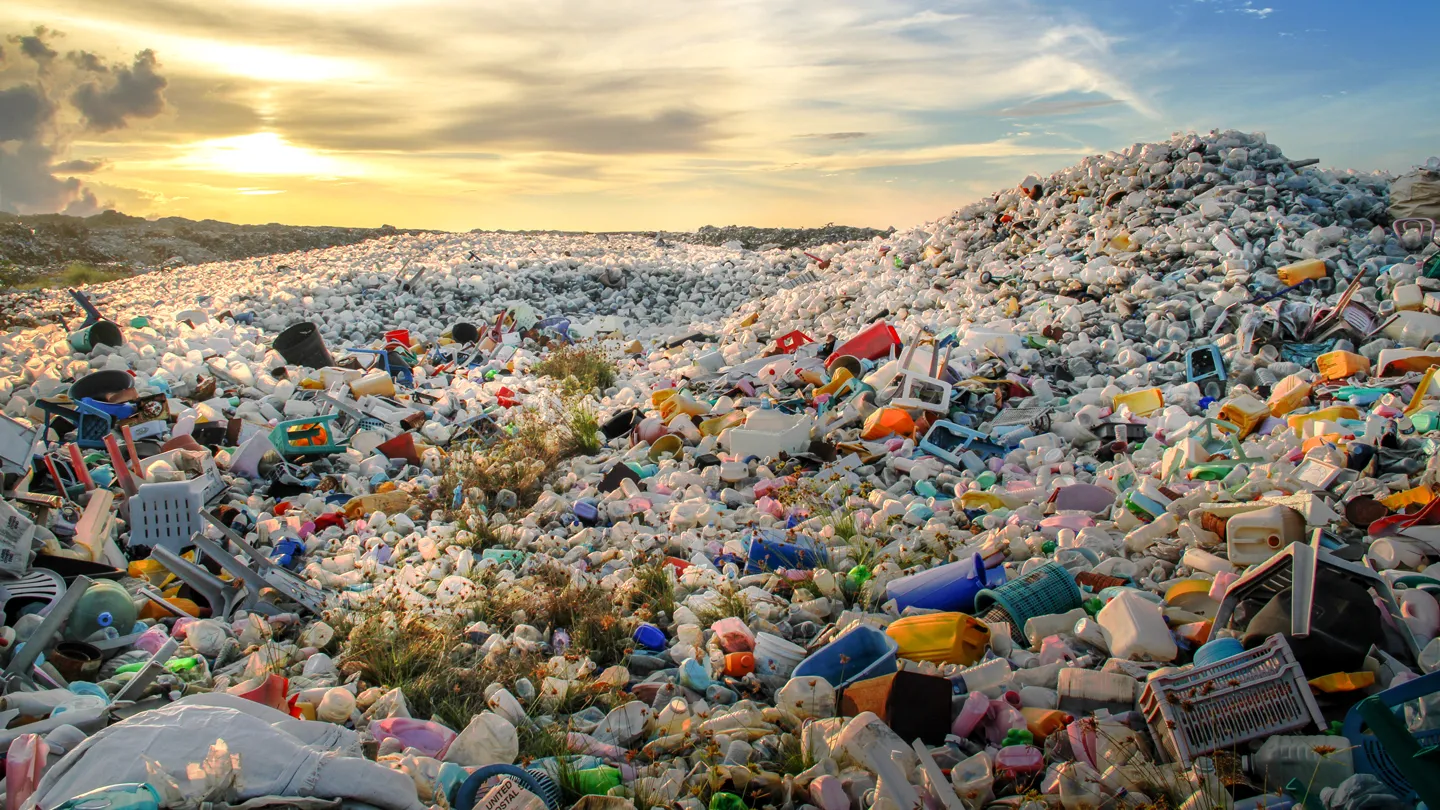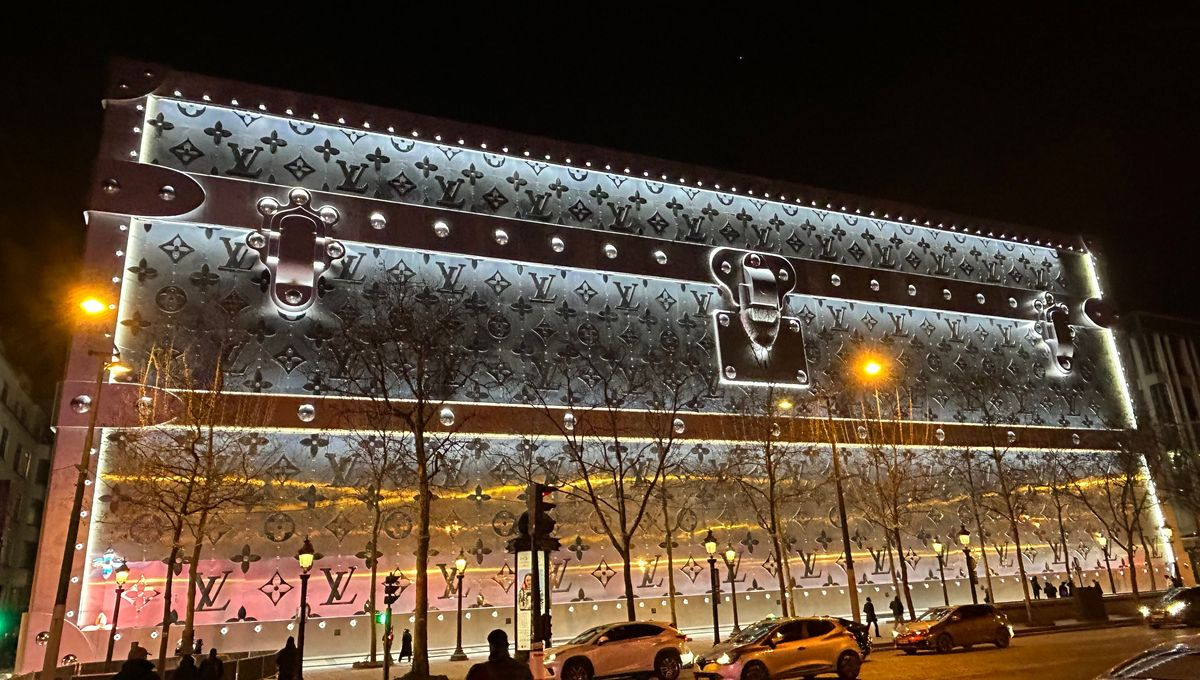Ecology in France - Green is the new Red
Recycling Socialism in a Green Bin ♻️🗑️
Disclaimer
Before diving in, I’d like to explain the context and goal of this article.
Ecology is a tricky subject. Some people don’t care about it, while for others, it’s a new religion. But no matter where you stand, we all live on the same planet, and it would be foolish to ignore the impact we have on it.
This article focuses on ecology within the specific context of France, highlighting one particular aspect of how it is approached here. Therefore, the content is intentionally focused to align with the article’s goal. Obviously, France and ecology in France are much more than what is covered here. But at some point, if you want to make people reflect on a subject, you have to step away from the neutral path..
About France
If you don’t know, France is one of the countries with the most social benefits and taxes in the world.
Since the 1970s, France has been known for:
- A growing public sector
- A deteriorating economy
For as far as I can remember, I’ve heard stories about factories relocating out of France. My grandfather and father both worked at a major factory that was very famous in our region. It moved to another country because labor became too expensive.
In France, there is some kind of hate toward the wealthy people. This idea is reinforced by a leftist public education system.
Everything is set up so that people depend on the state: social benefits, public jobs, subsidies, pensions, ..
This creates a mindset where making more money than others or becoming independent from the state is not normal.
Equality is one of France’s value.
Yet, some people seems to be “more equal” than other. The more you earn, the higher the percentage of your income you pay in taxes.
In the 1970s, 65% of the population paid income taxes. Today, it’s less than 45%.
In a democratic country where:
- The majority either don’t pay taxes or pay very little
- There is some hate against wealthy people
You can imagine what’s happening.
A Reasoned Approach to Ecology
As someone who grew up in the French countryside, and practicing outdoor sports since my childhood, ecology matters to me.
I remember helping my grandfather grow organic vegetables in our big garden, and sharing the harvest with the family. We kept things in our garage instead of throwing them away because they might be useful later for building or fixing something. We bought products from local farmers or at the city market. We always had chickens eating leftovers and gave us eggs in return.
We naturally did a lot of what today’s “eco-conscious, urban chic” lifestyle is about.
My definition of ecology is a reasoned definition of ecology: it should be based on logic or good sense.
The goal of this article is to show how France approach to ecology is everything but reasoned, and is used for a totally different purpose.
What Ecology Should Really Be About
To answer this question, I’ll share some examples from real life that I’ve encountered.
Drinkable water
When I was younger, I imagined that by 2025, we’d have flying cars.
We don’t. (but ultimately, it’s not like it would have been necessary)
And when it comes to drinking water, we have two options:
- Tap water, which contains things that aren’t good for our health. And when the safety levels are exceeded, instead of fixing the water, the authorities just raise the allowed limits so the water still qualifies as drinkable.
- Plastic bottles, which contain microplastics. We throw these away, but only a small part gets recycled, and most end up in landfills.

Packaging
I recently traveled to Japan, where everything is wrapped in plastic. I’ve never thrown away so much trash in my life. Why wrap a banana, which already has its own natural packaging and can decompose naturally? (Nature is well-designed)
Why, when I buy yogurt, is the container wrapped in another layer of packaging?


Supermarket Waste
All the waste in supermarkets drives me crazy.
Just to make sure people can buy whatever they want at any time, supermarkets are filled with vegetables and meat from all over the world. A lot of this ends up in the trash.
Most people shop at the same supermarkets, buying mostly the same things. Much of the waste could be avoided.
The worst part? All this waste costs more money, which gets added to the prices of products. In other words, we could easily avoid the waste and have cheaper groceries.

One Person by Car, All Going in the same direction
Where I live, there are huge traffic jams every day. It’s been this way for as long as I can remember. People are all going the same way, stuck alone in their cars.
We have trains and public transportations, but they’re always full.
And nothing changes.
Waste Management and Recycling Centers
People have waste to throw away. The logical thing would be to make it easier to collect waste and ensure it’s disposed of properly.
But this is France.
Where my mom lives, they are about to start putting trackers on trash cans to count how many times they’re collected each year. Then, you’ll be taxed based on the number of collections.
You also need papers to access recycling centers. If you don’t have them, you have to request them. It takes a minimum of a few weeks to get them (yes, it’s the French bureaucracy). After that, you only get a limited number of free trips to the recycling center each year. Beyond that, you have to pay.
First, all this added control costs money. Money that we don’t have because of our national debt.
But by doing this, we’re telling the French people: if you do the right thing with your waste, you’ll get taxed. But if you throw everything in the forest or burn it, you’ll save money.

I’ll stop here with the examples, but I think you get the idea of what I mean by reasoned approach of ecology now.
Surprisingly, when you hear about ecology on TV or social media, it’s not about solving these kinds of issues.
The High Sparrow, Father of the Faithful

As probably many of you know, I used to be a huge fan of Game of Thrones (I’m still waiting for the last books to be published, but sadly, that might never happen…).
Do you remember the High Septon?
If you don’t, or if you’re not familiar with Game of Thrones, here’s some context:
In Game of Thrones, the dominant religion in Westeros is the Faith of the Seven, a monotheistic religion with seven distinct aspects.
People who follow the Faith are called “followers of the Seven”, and their clergy is led by the High Septon. The Faith is widespread in Westeros, with religious leaders and septs (places of worship) throughout the land.
Season 5 introduces the High Sparrow, a humble and pious leader of a religious movement called the Sparrows.
The Sparrows are a radical group of religious zealots.
They begin as a grassroots movement, and little by little, leaded by the High Sparrow, they take control of King’s Landing. Soon enough, the High Sparrow holds more power than the king himself.
What’s interesting is that he gains this power without resistance. When people resisted, he would basically say that it wasn’t him who was in charge, but the gods.
”Are you against the gods?”
In a world where the Seven are so important, no one wanted to go against the gods.
Ecology Has Its Sparrows
Don’t Be Against the Gods
In Westeros, even if you were initially against the Sparrows’ will, you eventually had to accept it because it was the will of the gods. No one wants to be against the gods.
The same thing happens with ecology. It imposes new constraints on our lives, so at first, we might resist it. But even if you’re not practicing ecology yourself, you’d really be foolish to be against the idea of taking care of the planet. Which is the place where you, your family, your friends, and everyone else lives.
So, we end up accepting anything with an “ecology” label on it.
This puts the ecologists in a very strong position.
Ecology is a new religion
People gather around something.
In the West, it used to be Christianity. Not anymore.
Think about it: when you think about ecology, what faces do you put on it?
In France, we have a lot of Muslim people, but I don’t see the Muslim community being particularly impacted by the ecology movement. Not that there aren’t any Muslims involved, but most don’t care, probably because they already gather around their religion.
From my personal experience, ecology tends to be something more associated with non-religious people in large cities. Being eco-friendly is a good label to wear in society, when drinking beers in a bar. It makes them look like good people trying to save the world, and it gives them a purpose outside of their jobs.
It became a dogma: On a mission to save the world.
If you have another opinion on the subject, you’re automatically on the wrong side. You become their enemy because you represent a danger to the world and should be punished for your “wrong thinking.”
Look at social media.
Post anything positive related to ecology, and you’ll get tons of likes and comments. Most people will align with your post, and those who disagree (who are automatically labeled as jerks by most) will be attacked.
In Christianity, there’s Hell—a place where it’s hot and everything is burning.
In the ecology movement, climate change is Hell.
Ecologists tell us that things have only been getting worse since the beginning of time (which is not true if we look at climate cycles). They want to make us feel guilty and push us to join their cause.
Any scientific publication that contradicts the ecology movement gets censored.
Yet, the goal of science is to question existing theories. In science, something is true until it’s proven false. If you reject everything that contradicts the ecology movement, you can’t make progress. If the ideas behind their movements are true, they have nothing to be worry about. The worst case scenario for them would be that we discover there is no issue at all. Wouldn’t it be a very great news ?
This reinforces the idea of a dogma.
Isn’t France a Democraty ?
If the majority of people were convinced by these measures, there would be no need to impose them - we’d vote for them.
But around me, most people couldn’t care less.
I come from a modest background, where people are focused on putting food on the table, having a roof over their heads, and paying for gas for their cars. Maybe once every five years, they can afford a week of vacation, if they’ve managed to save a little and haven’t had any unexpected expenses.
For most people in France, ecology is clearly not a priority.
The “religious ecologists” believe they must take power by force because others don’t see their wisdom. They would like to bypass democracy and seize power to lead us toward the “sacred” path.
Ecology Only Impacts Richer People
At the beginning of this article, I listed examples of what rational ecology should look like: decisions that make sense and concerns everyone. Yet, surprisingly, when we hear about ecology today, it’s rarely about these solutions.
In practice, modern ecological policies seem more focused on wealthier people than on the broader population.
Vehicle Taxes
I’ve written a detailed article showing the absurdity of vehicle taxes in France. Basically, people aren’t taxed based on how much they pollute but rather because they have more money. source
Traveling
We hear a lot about the environmental impact of planes. Planes undoubtedly contribute to pollution. And it’s easy, when you see a commercial plane in front of you, to imagine the significant emissions per flight.
However, as I mentioned earlier, there are countless small everyday things, concerning everyone, that when added together have a great impact.
But flying is expensive, and air travel mostly concerns those who can afford it.
Luxury Goods

Ecologists contested the installation of Louis Vuitton’s giant trunk on the Champs-Élysées, which they describe as “illegal disguised advertising.” source
This had nothing to do with ecology. It was simply a reaction against a symbol of success, and products targeting wealthy people. The French have a complicated relationship with wealth, and companies like LVMH often become scapegoats.
Ironically, LVMH contributes significantly to the French economy and social programs. Therefore, the poorest people should be proud France has companies like LVMH.
Renovation Policies
Let me share my personal experience about building energy standards in France.
My apartment is rated “E”, on a scale here “A” is the best and “G” is the worst. To improve the note to “D”, I’d need to replace my double-glazed windows (which are already efficient) with .. new double-glazed windows. I’d also have to insulate an already thick wall.
The estimated cost? Around €30,000.
I heat my apartment for about five months a year, and my energy consumption is already quite low. Even if these renovations saved me €300 a year (which is a very optimistic estimate), it would take 100 years to break even.
That’s totally absurd.
Depending of your situation, you might be eligible for a financial help from the government. Guess what ? The wealthier are not eligible, but contribute to finance these helps through taxes on their income.
So a modest house holder can change his windows for a small amount of money, while a wealthier person pays the full amount for his windows and finance as well the financial help for others.
Wealthier people usually owns real estate to protect a part of their patrimony, and rent it to people. France also decided than some bad notes would be a apartment or house unauthorized for renting. Forcing energetic renovations.
My two cents.
It’s not about ecology, but it’s about forcing people to spend their savings on expensive renovations. Here’s who benefits:
- The state collects VAT on the materials and services.
- Companies and workers involved in the renovations generate revenue, creating jobs and paying taxes.
- Workers will spend their salaries, creating job, generating more VAT, etc ..
At the end, the state will collect huge lot of money. To make stupid spendings that will continue to make public sector and debt grow years after years.
Ecology Doesn’t Stop at Borders
20% of the effort often gives 80% of the results.
Yet, ecologists in France seem focused on diving into the remaining 80% of efforts for diminishing returns, claiming it’s the way to save the world.
Let’s put things into perspective. France has a population of 68 million people, while the global population is about 8 billion. Quick math: France represents only 0.85% of the world’s population. We are a small player on the global stage.
France is a developed country, but most of factories have moved in other countries. Our energy mainly comes from nuclear power, which is already one of the cleanest and most efficient energy sources.
If the real goal is to save the planet, wouldn’t it make more sense to help emerging countries start on the right path from the beginning? Take India as an example: an emerging country with 1.5 billion people. France used to lead the world in nuclear energy technology. If we helped countries like India adopt nuclear energy, we’d not only reduce global emissions significantly but also provide clean and reliable energy for their growing needs.
Such a strategy would have a far greater impact on the planet than focusing solely on France’s minor emissions. It would also bring money, helping reduce our national debt while making a meaningful contribution to the global effort.
This is just one example of how we could probably have a much greater positive impact on the planet.
Green is the New Red
Ecology is a new vector for the state to take money from wealthier people.
Even if ecology isn’t a priority for poorer individuals, the fact that it impacts the wealthy is often enough reason for many to support it.
Nothing the government does in the name of ecology seems focused on helping the planet. Instead, the real goal appears to be reducing the profits of wealthier individuals and extracting more money to strengthen the government and its ever-growing public sector year after year.